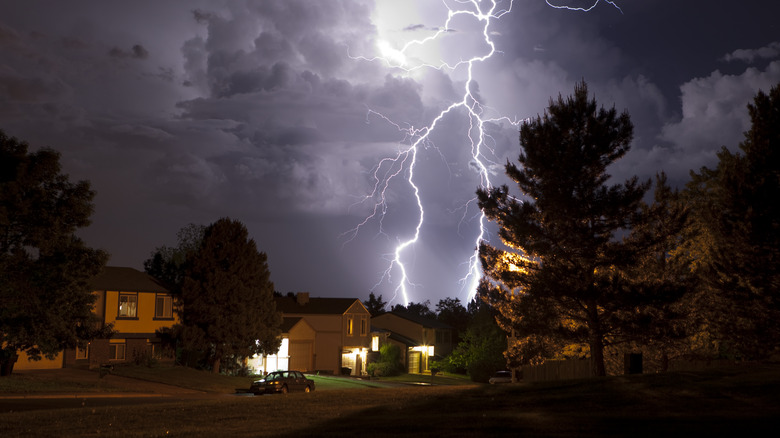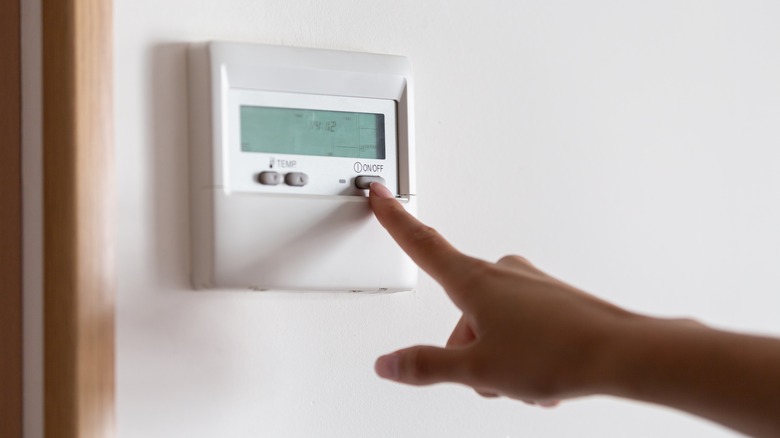Should You Run Your AC During A Storm? Here's What You Should Know
During thunderstorm season, it's always a good idea to brush up on safety rules so you know what to do next time lightning strikes in your area. You might already be accustomed to taking shelter when you hear thunder, especially if you're in a pool or other body of water. Yet there are also common household activities to avoid during a thunderstorm, too. For example, it is not considered safe to use any form of running water, such as a sink or shower, because lightning can travel through your home's plumbing. Another lesser-known risk during a thunderstorm involves your home's air conditioning unit.
Lightning strikes can be deadly. They cause the most deaths in the states of Florida and Texas, and are most common during the month of July. However, anyone who is in the path of a thunderstorm should be cognizant of lightning and its dangers both outside and within the home. One of the most important ways to prepare for a severe summer storm is to protect your home's AC unit from damage. The chances of lightning hitting your AC are low, but if it does strike this area of your home, you could be faced with some costly destruction. That's why the safest option is to turn the AC unit off altogether.
Why you should turn off your AC during a thunderstorm
Direct lightning strikes against AC units are not common, so you might think that turning off the AC isn't really necessary. As with other possible ways lightning can strike, though, the consensus among experts is that it's not worth taking the risk. Overall, they recommend that you turn off your AC during a storm, especially if your area is under a severe thunderstorm warning when lightning may be imminent. You should also consider unplugging expensive items, such as computers and appliances, and refrain from touching any plugged-in items.
If lightning does hit your AC unit, the energy of the strike can instantly destroy its components, including the compressor. In severe cases, the unit itself may even catch fire. Even if the AC isn't directly hit by lightning, it can be affected in other ways during a thunderstorm. For example, power surges can place stress on your AC and potentially cause failures. There's also the possibility that lightning strikes somewhere else, such as a utility pole, and then travels to your home's AC.
The reality is that you may not always get a chance to turn off your AC during every thunderstorm, especially if you are away from your home while at work or doing errands. There are still some steps you can take to protect your AC unit, though. Regular maintenance and unit grounding will help ensure your AC is better able to handle possible surges. You might also consider installing a lightning protection system in your home. Home-wide surge protection provides another layer of safety against lightning damage.

